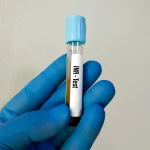If you are a person living with disability, or if you are caring for someone with disability, there may be publicly funded services that provide support for you. The National Disability Insurance Scheme (NDIS) provides services to Australians who have a permanent or significant disability. It can also provide connections to support provided by each state and territory government.
The NDIS is jointly funded and governed by the Australian Government and the states and territories. The scheme replaces current and former disability support services provided by state and territory governments. The NDIS is run by the Australian Government’s National Disability Insurance Agency (NDIA).
This page outlines how the NDIS works and where you can find out more.
Who is eligible for the NDIS?
The word ‘disability’ can mean many different things. To access services through the NDIS, you will have to meet some requirements. To be eligible for NDIS services, you will need to:
- be aged between 7 and 65 years
- be younger than 7 years with a disability or a developmental delay — this group and their families will be supported through the early childhood approach
- live in Australia and have Australian residency
- usually need support due to a permanent and significant disability
- use special equipment because of a permanent and significant disability
- need some supports now to reduce your future needs
You can read more about these requirements and check whether you are eligible on the NDIS website.
What does the NDIS do?
People who meet these requirements are called ‘participants’. Carers and family members may also be brought into the NDIS planning process as participants.
Every NDIS participant has an individual plan that lists their goals. Goals might be meeting new people, volunteering, or getting a job. The NDIS provides reasonable and necessary funding to achieve these goals.
NDIS participants can manage their own NDIS funds, or they can nominate someone else to control the support they receive, when they receive it and who provides it. See more here about controlling your own funding through your participant plan. The NDIS website also defines the types of supports funded.
People who are not eligible for the NDIS can still get help to access community and other government services. Children, younger than 6, who do not fully meet the definition of developmental delay and have developmental concerns will be supported through the early childhood approach. The NDIS can provide information and help connect people with disability, their families and carers to community and other government services.
Where is the NDIS available?
The NDIS is available across Australia. Visit the NDIS website for details about the NDIS in your state or territory.
For more information about how the NDIS and disability services work in your state or territory look at the relevant page below.
- Australian Capital Territory
- New South Wales
- Northern Territory
- Queensland
- South Australia
- Tasmania
- Victoria
- Western Australia


